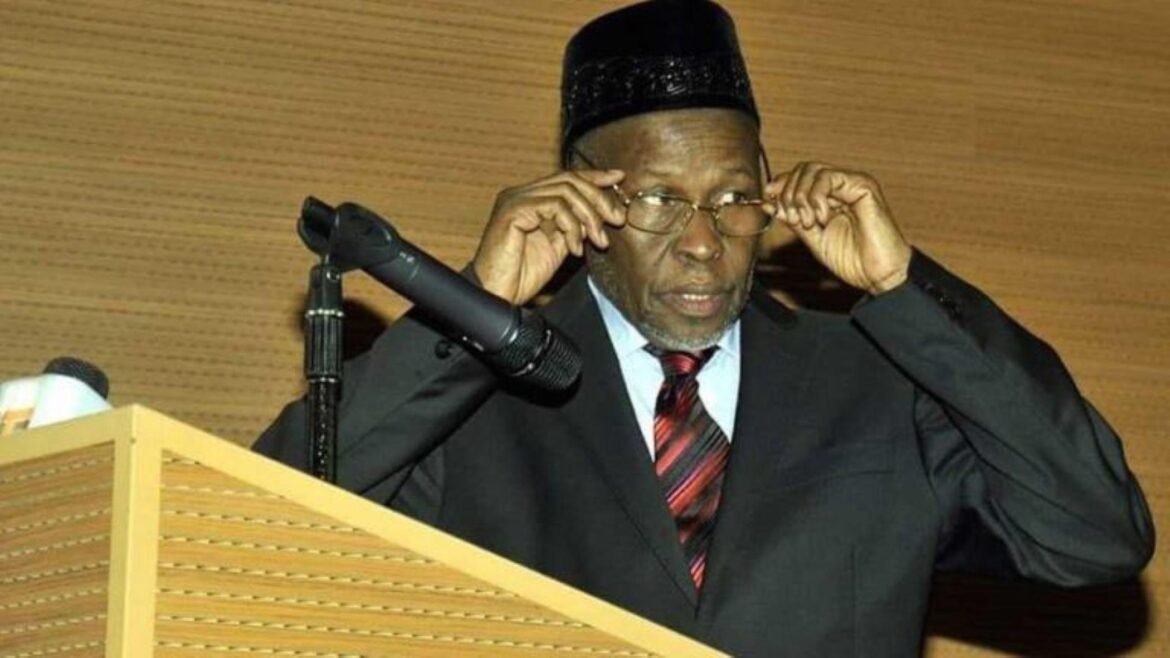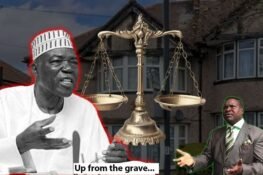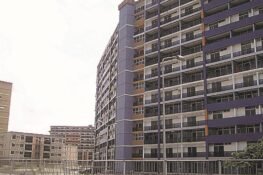Jeremy Corbyn, the immediate past leader of the opposition in the United Kingdom during the last general elections campaigned on a promise to abolish private schools.
His reasoning was that the schools were leading to inequality in the education system with many children getting left behind.
Delegates in his Labour Party went ahead to vote for radical policy changes that would have seen the government confiscate and redistribute assets of private schools.
But it was more than just a policy decision.
The move was just as much a political attack on his opponent, Prime Minister Boris Johnson, who himself admitted the private school he attended while growing up played a significant role in his becoming Prime Minister.
There is a reason his rise to power could be planned right from childhood; the United Kingdom is in so many ways a class society where social status buys political influence, titles are inherited and the titles were once the only path to a seat in the upper house of parliament.
It is system that is rigged against the less privileged, a members only club designed to keep money, influence and power in the hands of a few.
And unless you are invited, you get in regardless of your talent and all your hard work.
For nearly 300 years, one school has dominated British politics, producing more members of parliament and cabinet ministers than any other private or public school.
For a long time, private schools barely existed and so the opportunities for getting educated were never restricted to the elite
Today, it boasts not only of a prime minister but also the leader of the House of Commons in Jacob Rees-Mogg.
From the last 50 prime ministers of Great Britain, 20 of them attended Eton College, an all-boys boarding founded in 1440, with Johnson being the 20th and David Cameron the 19th.
And for the prime ministers that attended University of Oxford, the number rises to 29 of the last 50.
Attending Eton College comes with £42,000 a year cost, which is more than N20m.
Basically, that is what it costs to succeed in British politics.
And as can be imagined, for a school that has both Prince William and Prince Harry as old boys, getting admission into Eton College takes a lot more than just money.
At a time, you had to be registered at birth.
It helps though, if a previous generation of your family attended the school.
And in many cases, several generations of one family are likely to be Etonians.
The Nigerian society is a relatively young one and social status, at least as it exists in Britain and much of Europe was never a form of identity and a political and social system separating the rich from the poor has never really been built.
For majority of the population, you only have look to two or three earlier generations of a family to find a peasant farmer or hunter.
In that sense Nigeria can be said to be classless, a society without class.
And for a long time, private schools barely existed and so the opportunities for getting educated were never restricted to the elite.
In fact, Nigeria never really had an elite society.
In the 50s and 60s, the handful of individuals who happened to have gotten an education called the shots.
Things are different today.
The privileged are in search of a consensus on how to design a system where they retain money, power and influence.
It is mostly expressed by ‘who you know’ when going in search of jobs and opportunities.
Once upon a time in Nigeria, the surest way to political success was to join the Nigerian Army.
If you had political ambitions and could plan your career progression 20 years ahead, the army, not a political party was the place for you.
And sure enough, you would get be a military administrator, cabinet minister and maybe even head of state.
But it was always going to be unsustainable for the military to be the institution designing how to suppress or enhance social mobility.
Today though, civil servants, judicial officers and politicians have that opportunity.
It might seem like a drop in the ocean, but the recent reports of the children of Supreme Court judges getting nominated to be judges in the Federal High Court of the FCT is really evident of an emerging consensus by an elite group, a members only club to design a system where they and their offspring can retain power and influence.
It might be decades before it takes form, but it is indicative of a class society in the making.
This is not to suggest that members of the Supreme Court or National Judicial Council are engaged in a nefarious plot to foist their children and grandchildren on the rest of the population perpetually as the final adjudicators in legal disputes.
The suggestion that the selection process is rigged to favour those with connections is a very weighty allegation and calls into question, the independence and integrity of the NJC
It happens in all societies.
Nigeria is probably just coming of age.
In the United States, your chances of success are greatly improved if you attended one of the Ivy League universities that cost a fortune, Harvard being first on the list.
And unless exceptionally gifted, that is what takes to get into the best law firms, to easily get on bench, to have hopes of clerking for a Supreme Court justice or even getting nominated to sit in the country’s highest court.
That’s the path Chief Justice John Roberts went through and that basically defines the paths of the last justices nominated to the US Supreme Court.
It is either that or you’re genuinely outstanding and shine brighter than the rest regardless of background.
And yes, the system there is also rigged against the poor and ethnic minorities right from the process of admission into universities like Harvard.
It favours instead, children of the elite who like their fathers before them attended the same schools, worked in the same law firms and sat on the same bench.
These top universities counter allegations of serving only the privileged by offering admissions, even scholarships to the brightest of students, a handful of minorities and those with unique experiences.
In Nigeria, there is no rigged system that starts right from school.
But jobs and opportunities are becoming harder to come by.
So, those in privileged positions, politicians and the powerful get to flex their muscles.
Among those mentioned are a daughter of Justice Katsina Alu; a former Chief Justice of Nigeria, a daughter of Justice Mary Odili of the Supreme Court, a daughter of Justice Uwani Abba-Aji also of the Supreme Court, and a daughter of the former President of the Court of Appeal, Zainab Bulkachuwa
According to the Open Bar Initiative, a group of lawyers looking to defend the integrity of the legal profession in Nigeria; a majority of the 33 magistrates and judicial officers recommended for appointment by the NJC recently are unqualified and only made the list because of family affiliations.
The group has gone as far as sending a petition to President Muhammadu Buhari against the NJC recommended list.
It also claims that the selection process was compromised because judicial inside dealings were used to advance personal interests.
On the surface, it shouldn’t be a crime or even unethical for the NJC to recommend a relative of a Supreme Court justice or judicial officer to serve in a lower court.
But the fact that there are so many, to make the majority, in a list of 33 certainly raises questions.
The suggestion that the selection process is rigged to favour those with connections is a very weighty allegation and calls into question, the independence and integrity of the NJC.
But it also paints of bigger picture of how the Nigerian society is evolving and how those in privileged positions are seeking to protect those privileges.
But in the process of demanding answers the Open Bar Initiative has also made a blanket claim that all the recommended names with family ties to prominent justices are unqualified and would make bad judges.
Without a public scrutiny of their work record, that is an unfair characterisation to make.
Among those mentioned are a daughter of Justice Katsina Alu; a former Chief Justice of Nigeria, a daughter of Justice Mary Odili of the Supreme Court, a daughter of Justice Uwani Abba-Aji also of the Supreme Court, and a daughter of the former President of the Court of Appeal, Zainab Bulkachuwa.
There are roughly a dozen more who have been recommended by the NJC and have some kind of family connection with senior judges.
Suggesting that every single one of them is unqualified completely discredits what the Open Bar Initiative claims to be fighting for, which is a fair and open process.
It would have been more credible if the claim that these nominees were unqualified was made on a case by case basis.
It is very likely that there are hundreds of better qualified candidates out there who were not shortlisted by the Federal Judicial Service Commission and the NJC.
This is something they need to explain.
If they choose not to, the narrative that back door deals were made to promote personal interests will stand.
And as much as the family connections of the nominees should not qualify them for judicial appointments, it also shouldn’t disqualify them in spite of an ‘appearance’ of influence peddling in the selection process.
As for the impact on the larger society of judicial officers looking to create family legacies within the judiciary, build cult-like networks or a members-only club that can be debated for a long time to come.








